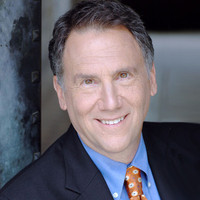Ha-ha-ha!
I'm not laughing at you. I'm laughing at your LinkedIn network.
That scraggly bunch of misfits, posers and losers won't be any help when you need them, if they are even there for you when you need them, which they won't.
Face facts: The accomplished, connected people who could be useful members of your network don't want to network with you. That leaves the networking riff-raff who send out thousands of random LinkedIn invitations simply to get themselves to a connection count of 500 plus.
Big woo!
When it comes to networking, it's not about quantity; it's about quality. If you're not networking with the stars, why network at all?
Just ask CEO and Huffington Post contributor Brian de Haaff. De Haaff doesn't want you to be in his network, and he certainly would never be in your network, but that doesn't mean he doesn't care. In fact, his latest Post post is absolutely aimed at you. It's headlined, "How to Build A Meaningful Network."
Though de Haaff is too nice to say it, the first step in building a "meaningful network of trusted colleagues and advisors" is to get rid of the deadbeats who populate your current network. You'll have to be cold and calculating in the process of curating your network, but if you see connections who you can help more than they can help you, they have to go. (Sorry, Mom. I'm not running a charity here.)
Of course, you can lighten the blow by sending a warm and caring email, something along the line of: "I regret to inform you that you are no longer a member of my LinkedIn network. I had great hopes for you, but after giving you plenty of time, you simply have not achieved the level of success that is required to be even a 3rd-level contact. If you ever get your act together and rise to a position where you can do me some good, let me know, and I will consider reconsidering our connection."
Being selective also means you won't be "attending unstructured industry mixers or wracking up the most LinkedIn connections." Your network may be smaller, but it will be mighty, and it will be filled with knowledgeable people with whom you have a deep relationship — people who will lend you $10,000 without asking why you need it or when you'll pay them back.
BTW: If you do connect with like this, send me their contact information. I want them in my network. Stat!
When using your network to ask for help, remember that "requests should be clear, meaningful and directed to the right person." If it's a work problem, for example, you'll want to aim your request for help to one of the co-workers in your network. Clearly explain in detail the scope and size of the mess you are in and then, meaningfully, ask your trusted connection if they will take the blame for you.
If they agree, you stay in your job. If they refuse, they're out of the network.
You are also advised to "abandon ego." As CEO de Haaff says, "you don't have to "embellish achievements or act bullishly to build your network." On the contrary, feel free to let your schlub flag fly. It's a great way to build yourself a fine "pity network," full of other losers who feel so bad that you are doing so poorly, they'll leap at the chance to help you. And don't worry about how many times you call for help. Your natural gift for screwing up will keep your connections on their toes 24/7.
If someone in your network has the nerve to ask you for help, it is recommended that you respond right away. I agree. Inform your contact that being such a needy person is a downer and not at all attractive. Still, you write, out of the kindness of your heart you will help them if they provide detailed information on their problems.
Send it off and then go on LinkedIn and block them forever.
That'll teach them to bother you.
Clearly, there are many ways you can build a meaningful network, but they require effort. I recommend that you forget all the psychological jujitsu and simply start giving away network spirit wear. "I'm a Member of (Your Name Here) Network and You're Not" T-shirts, mugs, cozies and BamBams will go a long way in developing LinkedIn network spirit, especially if your name is "Your Name Here."
Bob Goldman was an advertising executive at a Fortune 500 company, but he finally wised up and opened Bob Goldman Financial Planning in Sausalito, California. He now works out of Bellingham, Washington. He offers a virtual shoulder to cry on at bob@bgplanning.com. To find out more about Bob Goldman, and read features by other Creators Syndicate writers and cartoonists, visit the Creators Syndicate website at creators.com.






View Comments